Sewage Treatment Plant Manufacturer
Greenly Solutions is one of the top sewage treatment plant manufacturers in India, known for advanced wastewater solutions such as Sewage Treatment Plants (STP), Effluent Treatment Plants (ETP) and Zero Liquid Discharge (ZLD) systems. Our mission is simple: safeguard Mother Earth’s resources—save water now!
Why Sewage Treatment Matters
Sewage Treatment Plants treat wastewater originating from industries and residential societies so it can be reused in construction, agriculture, cooling towers, horticulture and more. By removing contaminants and converting solids into nutrient-rich sludge or compost, an STP protects public health, supports water-positive operations and slashes freshwater demand.
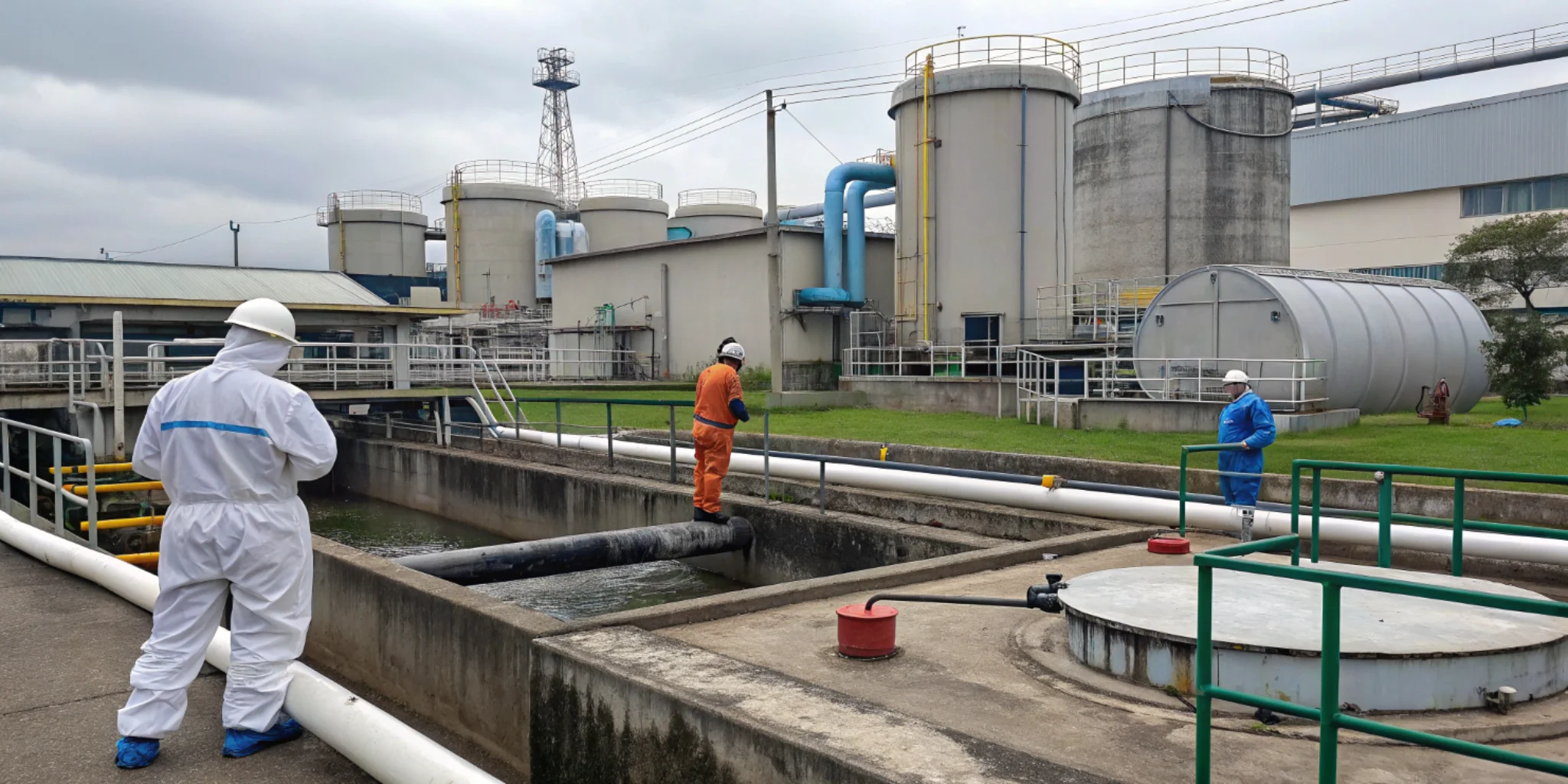
How a Sewage Treatment Plant Works
Inlet & Screening – Raw sewage enters the inlet chamber, then passes through fine and coarse screens that separate rags, plastics and debris.
Grit Removal – Sand, ash and clinker settle out to prevent abrasion downstream.
Primary Clarification – Sedimentation removes heavier solids; skimmers lift excess oil and grease, cutting BOD by ≈ 15-30 %.
Aeration (Secondary Treatment) – In the aeration tank, compressed air fosters aerobic microbes that break down dissolved organics and strip odour-causing gases.
Secondary Clarification – Biological sludge settles; clarified water receives a chlorine (or UV/ozone) polish for disinfection.
Sludge Handling – Thickened sludge is dewatered and reused as agricultural manure, closing the resource loop.
Technologies We Offer
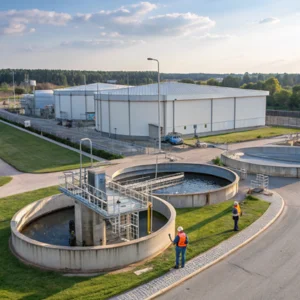
Extended Aeration (EA)
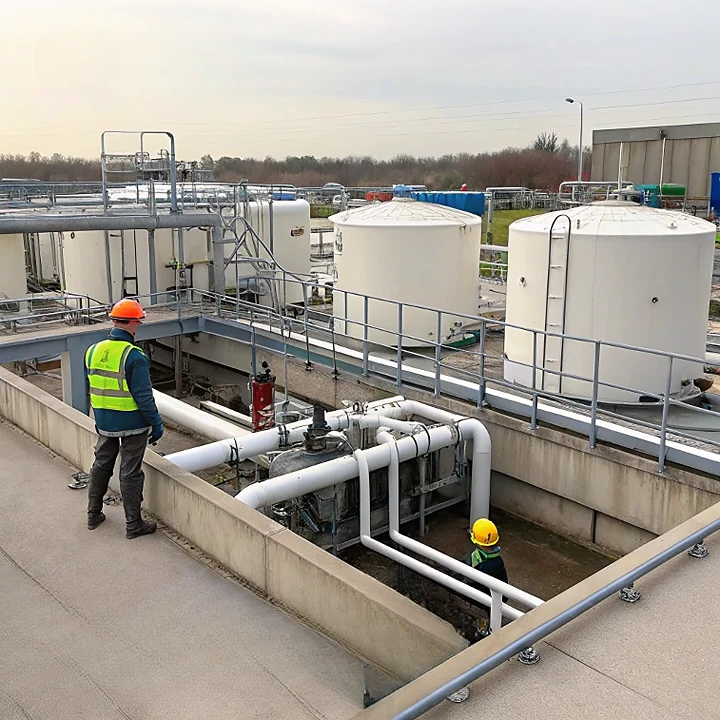
Submerged Aerated Fixed Film (SAFF)
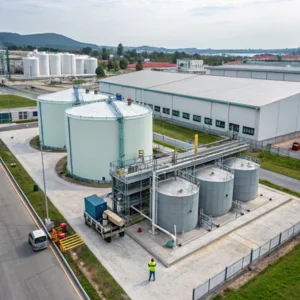
Sequential Batch Reactor (SBR)
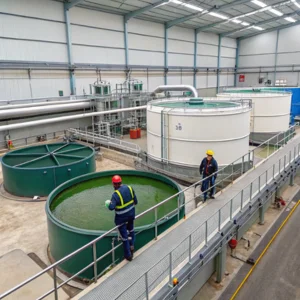
Moving Bed Bio-Reactor (MBBR)
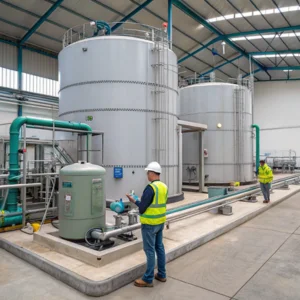
Membrane Bio-Reactor (MBR)
Compact Sewage Treatment Plants (CSTP)
A Compact STP delivers full-scale performance in a space-saving skid or container. Capacities start at 3 KLD and scale to multiple MLD, customised to the population load and discharge norms.
Key Benefits
✔
100 % Return on Investment—water savings pay back < 24 months in most sites
Low power & chemical consumption
✔
✔
Minimal maintenance (plug-and-play modules)
Quiet, odour-free operation
✔
✔
Remote monitoring ready (IoT dashboard)
Applications
Agriculture & irrigation water reuse
Oil & mining camps
Hotels & resorts
Manufacturing plants
Residential societies & smart cities
Airports & aviation hubs
FMCG processing units
Automobile OEMs & service centres
Universities & educational campuses
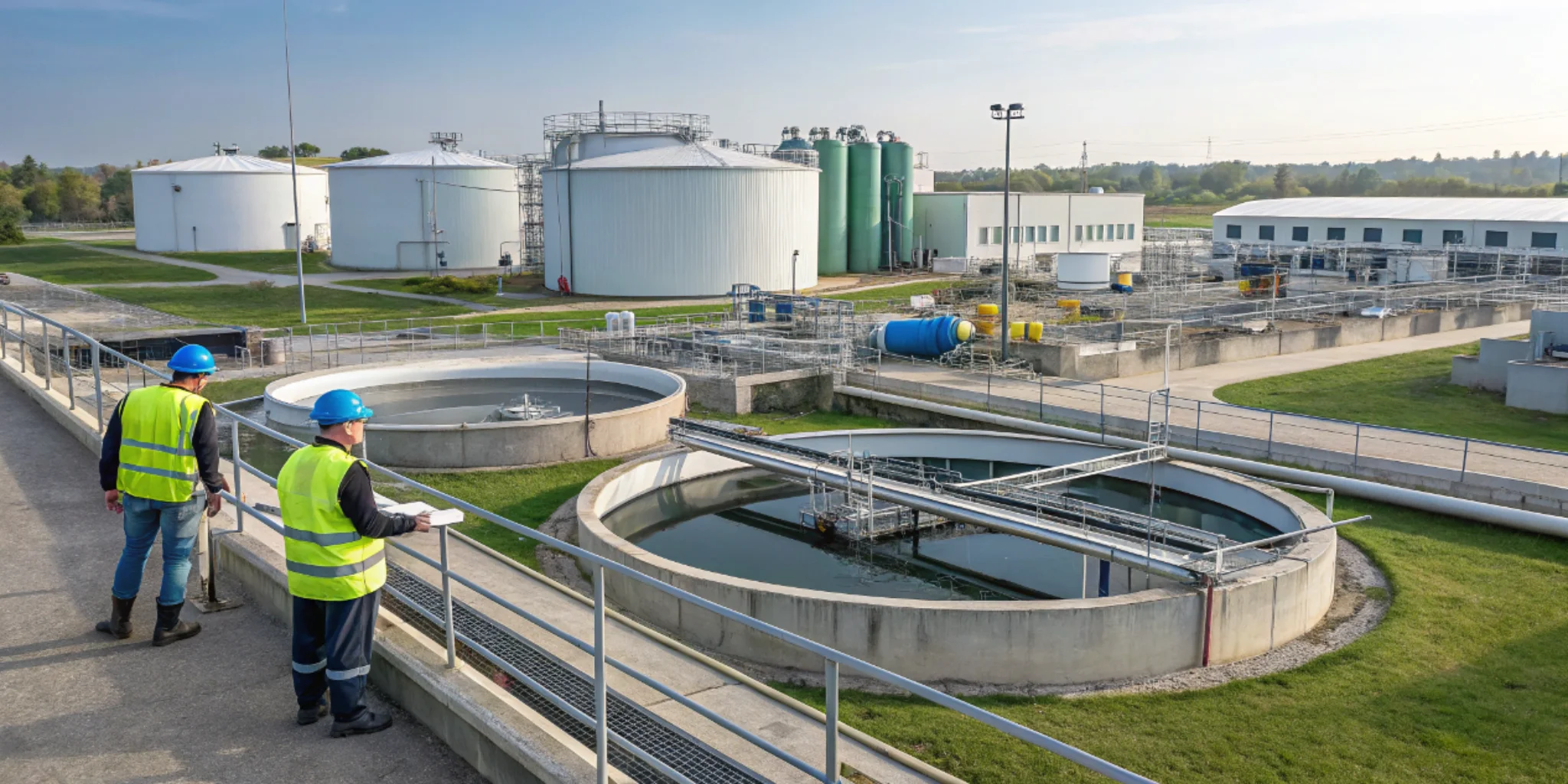
TrueWaters by the Numbers
50-plus million litres of wastewater treated every single day
350 + installations across India and the Middle East
99 % compliance rate with CPCB discharge standards
24 × 7 service‐desk with < 4-hour response
Frequently Asked Questions
What discharge standards do TrueWaters Sewage Treatment Plants meet?
Every TrueWaters STP is designed to deliver CPCB Class A effluent (BOD ≤ 10 mg/L, TSS ≤ 10 mg/L) and comply with all State Pollution Control Board norms. This premium quality makes the recycled water safe for horticulture, toilet flushing, process cooling and other non-potable reuse.
How much space is required to install a Compact STP?
As a rule of thumb, you need about 1 m² per KLD for Extended Aeration (EA) or Sequential Batch Reactor (SBR) packages. Membrane Bio-Reactor (MBR) systems are even more space-efficient, often cutting the footprint by 25 % thanks to their high mixed-liquor concentration.
Can treated STP water be used for drinking?
Standard STP output is intended for non-potable reuse. If you require potable water, add a tertiary RO + UV (or ozone) polishing unit to bring the quality up to BIS 10500 drinking-water standards.
What after-sales support does TrueWaters provide?
We offer annual maintenance contracts, 24 × 7 remote SCADA monitoring, operator training, and an on-site service guarantee within 48 hours anywhere in India, ensuring your plant stays compliant and efficient year-round.
What is the typical payback period for a Compact STP?
Most commercial and residential users recover their investment in 18–24 months through lower freshwater purchases and reduced effluent haul-off or disposal charges. Higher local water tariffs or strict zero-discharge policies can shorten ROI even further.

